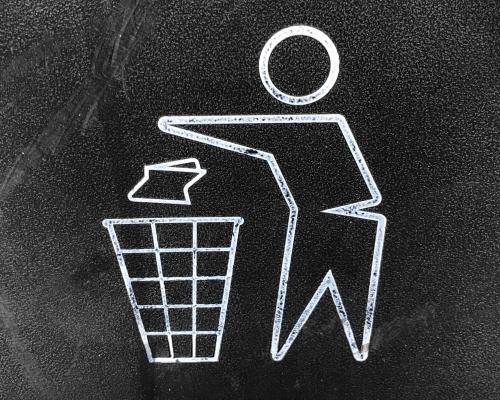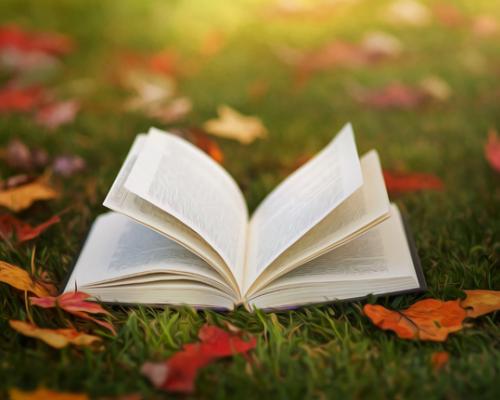The stories of our lives
Using HG insights to help us navigate this holiday season …
HG tutor, therapist and newsletter editor, Carol Harper, explores the power of story and how a sense of wonder leads to connection and meaning.
The fabric of our lives is spun from the threads of stories stretching back to time immemorial. We are at the time in the year when the ageless stories from our traditional backgrounds re-surface and are re-told to new and old generations. The narratives bind us together in community – be that Hindu, Sikh, Buddhist, Jew, Pagan, Wiccan, Druid, Christian … or consumer.
The power of metaphor and story is central to human givens organising ideas. We are hard wired for story. Before the written word there was a rich oral tradition designed to fire the imaginations of the listeners. The more skilfully told, the more emotionally engaged was the audience, ensuring that the traditions would be remembered and respected – and of course feared. The neuroscience of stories now implicates our response in Theory of Mind – where we can empathise with characters – and the brain’s default network, which helps us follow a narrative with our imagination and senses. A good story promotes activity in both left and right hemispheres of our brain; we pattern match new information to existing knowledge.
Stories have been used to teach deeper meaning in life, with metaphors that uncover more truth within the layers of the narrative. They are a powerful medium which have the ability both to enrich and disempower; to enlighten and obfuscate. Today we are overwhelmed with ‘stories’ and we have to learn to step back, recognise and discern the context in which they (or indeed we) are being used.
Most powerfully too, there are the stories we tell ourselves: our personal narratives of our lives, which may help or hinder our wellbeing. Telling ourselves we ‘should, could or ought to’ live our lives in particular ways because that’s how we’ve always done it may be a recipe for stress, anxiety and depression. What psychologist Martin Seligman identified as our Attributional Style – how personally, pervasively or persistently we view experiences – limits our clear thinking and creativity. To these three, I add ‘perfectionism’: a never-to-be-attained state. But it is perhaps the dogged pursuit of this that breeds much unhappiness and depression in the unwary. Nothing is ever quite ‘good enough’.
Telling ourselves different stories helps us move towards gaining a healthy balance, perspective and the ability to re-create ourselves. Re-framing a current situation as temporary, specific and non-personal helps us move towards more realistic or optimistic solutions. Whatever we are currently experiencing, ancient wisdom tells us, ‘this, too, shall pass’. We live with uncertainty now as much as ever.
The concept of our ‘multi-mind’ introduced by psychologist Robert Ornstein shows us that we have all sorts of characters competing for attention within our imaginations. Pat Williams expanded on this from a Human Givens perspective with her Which you are you? digital download, encouraging us to identify these characters and direct them wisely. What panto do you put on for yourself!?
Sticking to tradition
One definition of crazy is doing things the way you’ve always done them and expecting things to change. Our human brain is a problem-solving organ – the stories we hear or tell ourselves may imprison us or release the imagination to celebrate the small wonders, the kind gestures, the priceless gift of human connection, however we may make this happen this ‘holy day’ season. Here’s a seasonal story…
A holiday guest was intrigued to notice that her host carefully split the turkey in two before adding the trimmings and placing it – in two tins – into the oven. It looked such a splendid bird that he asked why it was necessary to prepare it in this way. The host looked a bit blank and said that maybe her mother could provide an answer, as she had always cooked the bird in two pans. The mother was in the other room and the guest posed the question: again, a blank look. “Oh, I don’t really know, my mother always did that: you’ll have to ask her”. As luck would have it, the old woman was present too and listened carefully to the guest’s question. She nodded in understanding ... “Well, of course, I didn’t have a big enough tin to cook the turkey whole!”
Lonely this Christmas?
The enduring significance of the lyrics first performed by Elvis Presley resurfaces again with the announcement that the number of people self-reporting feeling lonely has increased hugely over the past few years. Now the effects of the pandemic, lockdown and the upcoming season, with likely dashed expectations of, or worries about, family gatherings, exacerbate the situation for many. Many others, of course, will welcome the opportunity to keep things quiet and simple.
The phenomenon ‘lockdown loneliness’ was identified in a survey by the Office for National Statistics where a sample of 5,000 people reported the negative impact of lockdown. It’s widely recognised that COVID-19 has compromised our ability to meet our needs for social connection and friendship, but it’s important too to acknowledge the difference between loneliness and isolation. People may feel isolated even when they have people around them, especially in a struggling relationship. Although we tend to think of loneliness largely as a problem for older people, increasing evidence suggests that it is younger people who suffer, often because of the negative impact of social media. We may feel very alone if we are unable to communicate our emotions: if there is no-one to listen and hear us.
There will be people who are alone who do not experience loneliness, of course, but for others the experience of loneliness is a very real and felt sense. A significant factor in this is an individual’s perception, perhaps regardless of how well their needs are being met; and their ability to access their innate resources. If we look at loneliness through the lens of APET, our Human Givens’ understanding of the sequence of brain function, we can see that, especially at this time of year there will be many ‘Activating agents’: shortening days and the changing of seasons, music, rituals, TV ads, significant dates on the calendar. Our need to ascribe meaning to any of these events, to make sense of them, causes us to ‘Pattern match’ – to go on an often unconscious search through our memory banks. The strength of the associative memory will give rise to an Emotion, which of course may be pleasant or unpleasant and our bodies will experience this as a feeling which leads on to musings, ruminations or catastrophic thoughts rather than clear, rational Thought. An experience of loneliness for example can give rise to emotionally charged thoughts which, if unchallenged, go around in circles leaving the sufferer feeling worse and worse. We need to listen to the stories we tell ourselves, find ways to reframe our situation, calm our emotions, and experience clear thinking.
Perhaps the underlying emotion of loneliness and isolation is fear of exile. Our emotional brains, wired as they are for social connection within a tribe, are threatened by uncertainty and insecurity. In the background, the gnawing anxiety of being thrown out or left behind becomes existential. Our fragmented western society leaves us longing to belong, somewhere, with someone. Grief may compound our sense of aloneness: bereavement may be seen as an extreme version of social isolation.

Whatever the demographic, or the cause, loneliness and isolation have a serious impact upon physical and mental health; a symptom perhaps of a society that has become more individualistic over the past 40 or so years. Covid-19 has added insult to injury. I’ve just been looking through my local parish newsletter and a recurrent theme is ‘postponed until further notice’ for activities, groups and village halls. Places of worship, however, are now opening with the promise that small congregations may meet. Throughout the pandemic, platforms such as Zoom have proved a godsend(!), not only to religious organisations of course. While it cannot be a substitute for physical contact, opportunities to connect with people all around the world have opened up.
Having a religious or spiritual outlook or philosophy is one of the ways in which people meet their need for meaning and purpose in life. A sense, or knowledge, that there is something greater than us, that the whole is more than the sum of the parts; that we are interdependent with the natural world, rather than independent of it (as so many of us seem to live our lives). We cannot not be connected – unless we perceive ourselves thus.
Another way in which people meet the need for meaning and purpose is by stretching themselves, mentally or physically to achieve desired outcomes. During lockdown, many people have taken on new challenges – Captain Tom Moore, for example, walked 100 laps of his garden to raise money for the NHS and celebrated his 100th birthday soon after.
The third way in which we can meet our need for meaning and purpose is to be needed by other people. While for many this may have led to increased stress during Covid, in caring for elderly or sick relatives or young children for example, for many others it has been a path out of loneliness and isolation. Although necessarily there have been restrictions, there have been opportunities for people to connect through such organisations as Brighton-based Together Co which introduces people across the generations for mutual benefit. The story of Shane Cocker, the ‘man who talked to chairs’, has been recorded by the BBC and beautifully illustrates how focussing outwards and offering to help others has led to connection and meaning. Similarly, in Cornwall, HG practitioner Patrick McWilliam offers his ‘shed’ as a facility that uses sculpture to promote social engagement amongst lonely and isolated veterans. Together they have created three sculptures to place in each of the three Cornwall NHS hospitals. Elsewhere, many who have themselves felt isolated have found ways to give as well as receive meaningful support by offering blogs and poetry via social media.
Countless examples have shown that when other needs are not well met, it is by maintaining a sense of meaning and purpose that we find a quality in life that helps us overcome difficulty, and promotes resilience.
It has been said the meaning of life is to find your gift, and the purpose of life is to give it away. Wherever you find yourselves this season, I hope you find your gift. And maybe solace in solitude: time for reflection and renewal. This year quickly passing may be one in which, with the benefit of hindsight - 2020 vision? - we will have learned more about ourselves, done things differently and reached out to, or for, others. The very purpose of life.
Sources
- Lancet Child Adolesc Health. 2020 Aug; 4(8): 567–568. Published online 2020 Jul 22. doi: 10.1016/S2352-4642(20)30213-3
- https://www.sciencedaily.com/releases/2018/09/180913113822.htm
- https://www.bbc.co.uk/news/extra/aoyyqz3jg4/lockdown-loneliness
- The effect of loneliness and isolation can be as harmful to health as smoking 15 cigarettes a day, and is more damaging than obesity - https://www.campaigntoendloneliness.org/wp-content/uploads/Promising-approaches-to-reducing-loneliness-and-isolation-in-later-life.pdf
Sapolsky, R.M. (2004) Why zebras don’t get ulcers (3rd edition). St Martin’s Press, New York.
Resources/inspiration
www.togetherco.org.uk
www.platform-1.co.uk
https://www.debt.org/advice/emotional-effects/
And... You, yourself!
© Carol Harper, December 2020
Latest Tweets:
Tweets by humangivensLatest News:
HG practitioner participates in global congress
HG practitioner Felicity Jaffrey, who lives and works in Egypt, received the extraordinary honour of being invited to speak at Egypt’s hugely prestigious Global Congress on Population, Health and Human Development (PHDC24) in Cairo in October.
SCoPEd - latest update
The six SCoPEd partners have published their latest update on the important work currently underway with regards to the SCoPEd framework implementation, governance and impact assessment.
Date posted: 14/02/2024












